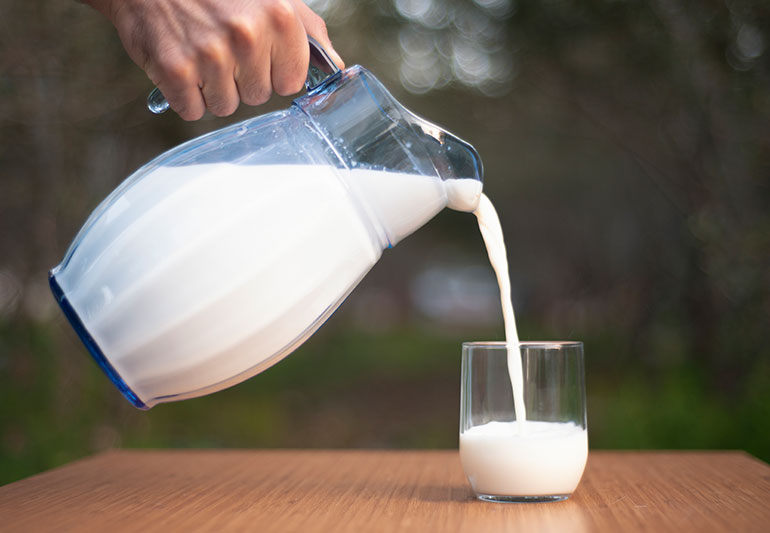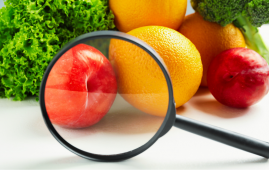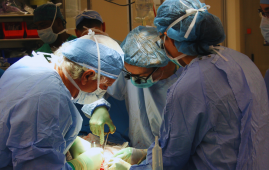

Some people prefer unpasteurized — or raw — milk and milk products, believing they offer more nutrients, cause fewer allergies and promote health.
Yet the Centers for Disease Control and Prevention reports that unpasteurized milk is more likely than pasteurized milk to cause foodborne illness that can lead to hospitalization.
“A little processing goes a long way in preventing the illnesses associated with raw milk,” says Erin Rossi, RD, LD. “Pasteurizing milk — heating it to 161 degrees for just 20 seconds — kills any and all bacteria.”
It’s been more than 120 years since Louis Pasteur came up with this fail-safe process for killing the bacteria raw milk can harbor, including Salmonella, E. coli and Listeria.
Who’s most at risk of illness?
Most healthy people recover quickly from the vomiting, diarrhea, abdominal pain and flu-like symptoms these bacteria cause.
But older people, children, pregnant women and those with weak immune systems can quickly get very sick. Symptoms can become chronic, severe and even life-threatening.
Seek care promptly if you become ill after consuming a raw milk product— especially if you’re pregnant. Listeria can cause miscarriage and fetal or newborn death.
Products to check carefully
Most U.S. milk and milk products contain pasteurized milk or cream or were processed in a way that destroys bacteria. But you can still find products made with raw milk, including:
- Milk and cream.
- Soft cheeses (Brie, Camembert).
- Mexican soft cheeses (queso fresco, panela, asadero, queso blanco).
- Yogurt.
- Pudding.
- Ice cream and frozen yogurt.
So, take a minute to read a product’s label to make sure you see the word “pasteurized.” If it’s not there, the product may contain raw milk.
Take special care with milk products sold at farm stands or farmer’s markets. Don’t buy them unless you can confirm they’ve been pasteurized.
Facts to remember
Myths persist about pasteurization and raw milk. Here are the facts:
- Pasteurization does not reduce the nutrients in milk. “The nutritional value is the same for all milk across the board, except that pasteurized milk does not carry the risk of bacteria,” notes Rossi.
- Both raw and pasteurized milk contain proteins that trigger allergic reactions or lactose intolerance in those who are sensitive.
- Pasteurization does not make it safe to leave milk unrefrigerated (especially when opened) for long periods of time.
- Pasteurization does save lives.
Protect your family
Milk is a family staple for good reason. The calcium it contains helps build strong bones and teeth while keeping your heart beating, blood clotting and muscles and nerves functioning. The protein it provides helps strengthen muscles and prevents their breakdown.
“Our food supply is among the safest in the world, but it’s not always risk-free,” says Rossi. “Foodborne illnesses are preventable with proper handling and processing — including pasteurization, which minimizes risks while preserving vital nutrients.”
more recommended stories
 Texas Medical Board Releases Abortion Training for Physicians
Texas Medical Board Releases Abortion Training for PhysiciansKey Takeaways Texas Medical Board has.
 Safer Allogeneic Stem Cell Transplants with Treg Therapy
Safer Allogeneic Stem Cell Transplants with Treg TherapyA new preclinical study from the.
 Autoimmune Disorders: ADA2 as a Therapeutic Target
Autoimmune Disorders: ADA2 as a Therapeutic TargetAdenosine deaminase 2 (ADA2) has emerged.
 Kaempferol: A Breakthrough in Allergy Management
Kaempferol: A Breakthrough in Allergy ManagementKaempferol, a dietary flavonoid found in.
 Early Milk Cereal Drinks May Spur Infant Weight Gain
Early Milk Cereal Drinks May Spur Infant Weight GainNew research published in Acta Paediatrica.
 TaVNS: A Breakthrough for Chronic Insomnia Treatment
TaVNS: A Breakthrough for Chronic Insomnia TreatmentA recent study conducted by the.
 First-of-Its-Kind Gene-Edited Pig Kidney: Towana’s New Life
First-of-Its-Kind Gene-Edited Pig Kidney: Towana’s New LifeSurgeons at NYU Langone Health have.
 Just-in-Time Training Improves Success & Patient Safety
Just-in-Time Training Improves Success & Patient SafetyA study published in The BMJ.
 ChatGPT Excels in Medical Summaries, Lacks Field-Specific Relevance
ChatGPT Excels in Medical Summaries, Lacks Field-Specific RelevanceIn a recent study published in.
 Study finds automated decision minimizes high-risk medicine combinations in ICU patients
Study finds automated decision minimizes high-risk medicine combinations in ICU patientsA multicenter study coordinated by Amsterdam.

Leave a Comment